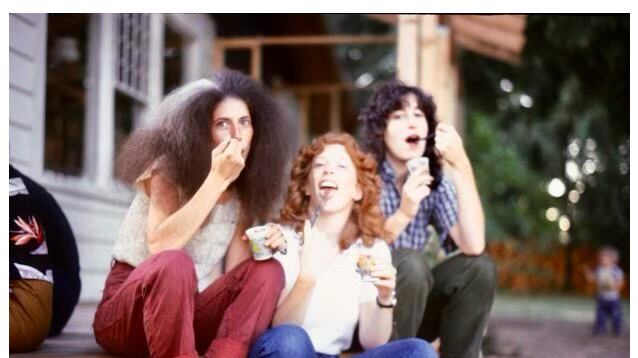“I became a real writer at Willamette Week.”
Those are the words of Susan Orlean in her new memoir, Joyride (Avid Reader Press, 353 pages, $32), the story behind the celebrated journalist’s famous stories.
After an illustrious four-decade-plus career in magazines and books—including The Orchid Thief, which was made into the 2002 film Adaptation—it might be easy to forget that the journalist got her start here at WW. (We didn’t forget, of course.) After working here from 1978 to 1982, Orlean kept writing for alternative newsweeklies such as The Village Voice in New York and The Boston Phoenix before diving into the magazine industry, where she landed in her current position as a staff writer at The New Yorker in 1992.
Early ’80s Portland was sleepier and cheaper than where we live today. It was a gritty port city that had “a quality of being suspended in time, a city preserved in amber,” as Orlean puts it in Joyride. Cocaine was available at parties by the platter. (See this excerpt for more.)
But by day, Orlean managed to stay focused on her writing career. She realized she was drawn to writing about people who were rarely written about, which became a hallmark of her career. Then-editor Ron Buel taught her the three-part writing process that she has used for decades: reporting, thinking, and then writing.
“Thinking might seem like an obvious step, but including it as an instruction, a specific phase of the writing process, felt revelatory,” Orlean writes in Joyride.
Orlean will appear at the Portland Book Festival on Saturday, Nov. 8, in conversation with Andrew Proctor, executive director of Literary Arts. She answered WW’s questions via email about journalism, her career and Joyride, which was published in mid-October.
WW: It was fun to read your recollections of Willamette Week in your memoir. Was there anything else about your time at the paper that you didn’t include in Joyride that you can share?
Susan Orlean: I tried to capture it all, but most of all the exhilaration of feeling like we were doing something really important. We were young and full of confidence and excitement. It was wonderful. I wanted most of all to share how it felt like a family, which the paper truly was.
Joyride is a very personal book for someone whose lens is usually turned outward. What part or chapter are you most nervous about putting out in the world?
Certainly, writing the personal sections were the most emotional and sensitive for me. I don’t think I’d say I’m nervous, but it does feel very frank and vulnerable to share those personal things.
Has Joyride made you completely confident and accepting of writing in the first person? I know earlier in your career there was some hesitation.
I’ve become comfortable with it, both as a function of a piece that’s about something outside of myself, and in writing about myself. I do feel like I have an intimate voice as a writer—that is, that it feels subjective and conversational—so first person does come naturally. It just took me a while to feel that I could use it without it getting in the way.
Does impostor syndrome ever fully go away? I was surprised to see it pop up for you in 2009.
Sadly, I think impostor syndrome is part of the human condition! I think all of us, but especially people in a creative field, have nagging doubts about whether we’re really legitimate. In a way, it’s a healthy bit of self-doubt and reflection, even though it’s uncomfortable.
When was the best era of journalism and why?
I don’t think there was a best era. I think great work has been done all along, no matter what the conditions were of the time. The late ’70s and ’80s seem golden, with so many writers stretching out and doing innovative, interesting work. But I don’t think that ended with the end of that period of time. Each era has had its strengths; they’re just different strengths.
Our WW intern, age 18, asked me if I thought journalism would be a viable career path for her. How would you have answered that question? (I didn’t know!)
I don’t know either! I hate to be discouraging, and I refuse to believe we’re seeing the full-stop end of this profession: I don’t believe that. But it relies much more these days on an individual’s talent at finding their own way—being an entrepreneur, promoting and pushing ahead. No magazine or publication will take care of you the way they might have done in the past.
Would your career path be possible now, if you were starting in 2025?
If you’re fierce enough and determined enough, I believe you could do it. It’s never been easy to go this route, and it’s probably harder than it’s ever been, but I hope and believe it could happen.
What is your favorite and least favorite part of the process of writing and publishing a book?
My favorite is when I’ve written a lede that I think is good—it’s such an important part of the process for me, and if I think I’ve nailed it, I’m ecstatic! The least favorite is the period of time when I’m waiting for reviews. It’s nerve wracking!
There are many examples in the book of times you trusted your journalistic instincts and it worked out, often despite doubts from editors. Here’s the first part of a two-part question: How did you develop that confidence—was it nature or nurture?
I think confidence is a combination of nature and nurture! I don’t think you can invent it if you don’t have a core sense of confidence, so some of it is just integral to your nature. But experience, especially successful experience, gives you a heap of learned confidence. And then there’s the additional factor, which is you do have to adopt a posture of confidence to carry you through even when you’re not quite there.
Second part: Please give me an example of a time you trusted your journalistic instincts and the article or project was a flop.
As far as trusting my instincts…that’s a good question, and I can’t come up with a good answer! I can’t think of an example of believing something was going to work and having it miserably collapse. Almost everything I’ve done has shape-shifted as I worked on it, and inevitably there have been moments in each project when I thought I was about to crash and burn. But I soldiered on, and even though the stories ended up different from what I expected, they came together in their own way.
SEE IT: Susan Orlean in conversation with Andrew Proctor at Newmark Theatre, 1111 SW Broadway, 503-248-4335, pdxbookfest.org. 10 am Saturday, Nov. 8. $18–$25, $27 add-on book option, $5 Arts for All, free for veterans and students 18 and under with ID.

